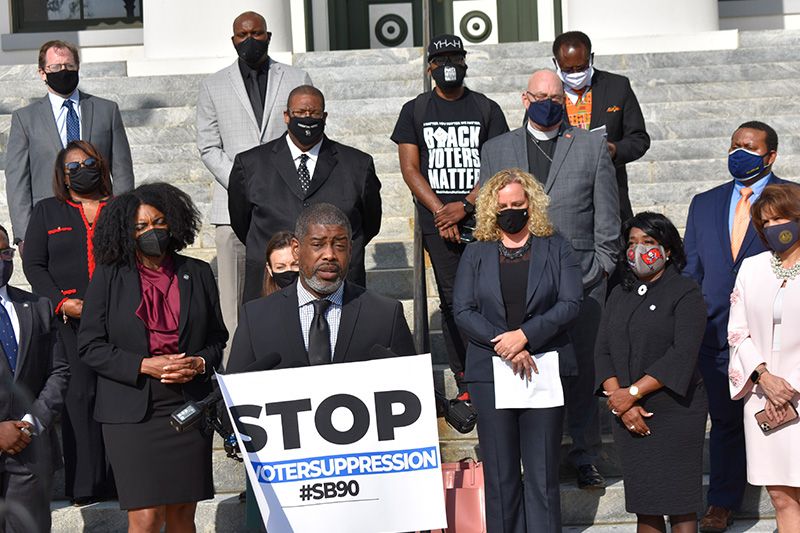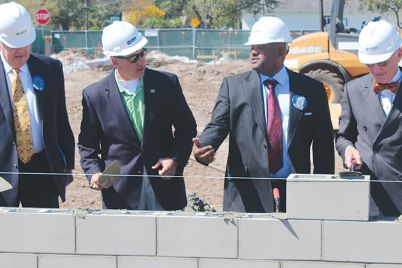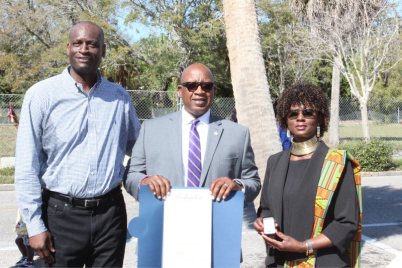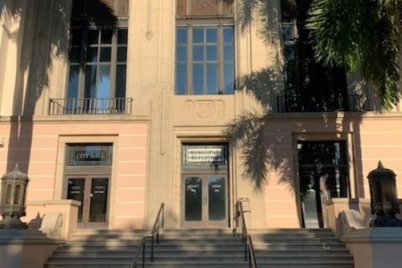Members of the Christian Clergy Alliances gave a press conference on the steps of the state capitol on March 25 to publicly address the suppression of the vote. Photo courtesy of Equal Ground Action Fund.
FRANK DROUZAS, Staff Writer
TALLAHASSEE — A group of Florida pastors who want to fight for voters’ rights and are tackling Senate Bill 90 head-on.
Representing the Christian Clergy Alliances across the state, dozens of pastors have directly appealed to the state senate rules committee to consider the unfair disparities that the proposed SB-90 would create. The bill, sponsored by State Senator Dennis Baxley, R-Ocala, seeks to eliminate drop boxes at early voting sites, among other vote-by-mail restrictions. All current vote-by-mail enrollments would be wiped clean, forcing six million Florida voters to sign up again and re-enroll every election cycle.
But the pastors are convinced that this bill is an attempt by lawmakers to mend something that isn’t broken.
Many state officials have praised the recent vote-by-mail elections, and in a press release, even Gov. Ron DeSantis boasted: “Last November, Florida held the smoothest, most successful election of any state in the country.”
Bishop Thomas Scott of 34th Street Church of God in Tampa is one of the clergy members to sign the letter, which stated the bill would “adversely affect the voter participation of those we serve.”
Several of the pastors met with Sen. Baxley on March 23 and asked him directly what data he had that showed this bill would fix a problem, as is the claim.
“One of the questions was: ‘On what premises, on what facts do you have that suggest there is a problem in terms of mail-in ballots and early voting and drop boxes,’” Scott said. “He couldn’t answer that question because there are none!”
Thomas claimed that the Republicans backing this bill find themselves in a situation: if they stand by former President Donald Trump’s claim that the election was stolen, they claim they have to fix the process. Furthermore, their big-money donors are telling them that they won’t receive donations until they fix the problem, Scott explained.
“So now they’re trying to fix a problem that does not exist,” he said.
Thomas sees it as an attempt to reduce the opportunity for people to vote and, ultimately, a move to suppress minority votes. In the letter to the rules committee, Thomas and others stated: “Eliminating drop boxes will also disproportionately impact voters of color, low-income communities, individuals with disabilities…”
He used himself as an example. In running for county commissioner recently, he lost by 150 votes. Yet 1,500 votes came in through the mail the day after the election that could not be counted.
“The law said they have to be in the night of the election by 7 p.m.,” Scott said. “Had those ballots been dropped off at a drop box as opposed to being mailed, perhaps I would’ve won that election.”
Scott, who has served on the Hillsborough County Commission for 10 years and has served on the candidacy board, dismissed any claims that conveniences such as drop boxes and mail-in options make elections less secure.
“Every signature on the ballot has to be matched and verified,” he said. “Every signature has to be verified, so that is not true! They have no data at all to substantiate that.”
Wiping the voter enrollment every year is not only a deterrent to participation, but it would prove costly, Scott believes.
“They’re going to have to spend anywhere from $12 to $14 million annually,” he pointed out, “because once you wipe those voter rolls, you’ve got to start all over again.”








